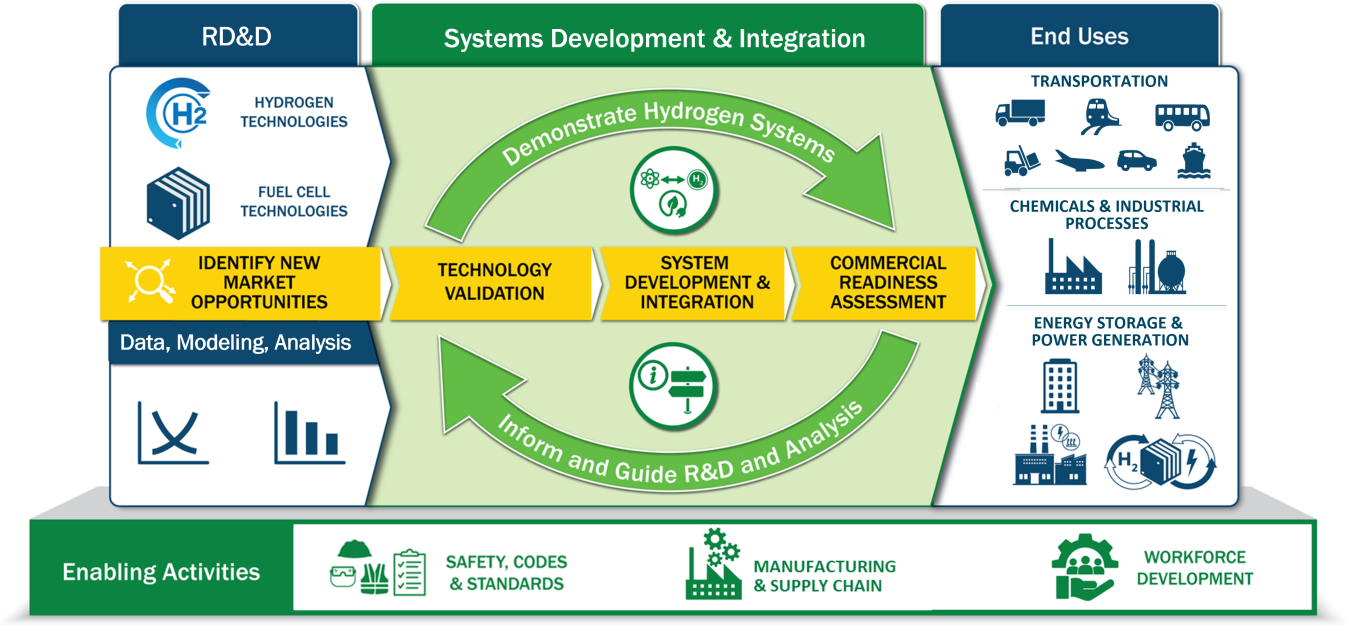The Systems Development and Integration (SDI) subprogram conducts targeted hydrogen and fuel cell systems integration and demonstration activities to enable the H2@Scale vision, supporting the U.S. National Hydrogen Strategy and Roadmap, and aligned with opportunities identified in the Pathways to Commercial Liftoff: Hydrogen report.

The SDI subprogram conducts technology and systems integration and validation activities to advance hydrogen and fuel cell commercialization and to provide data that feeds back to further guide hydrogen and fuel cell technologies research, development, and demonstration.
SDI coordinates closely with other Hydrogen and Fuel Cell Technologies Office (HFTO) subprograms in the research, development, and demonstration of hydrogen and fuel cell technology subsystems and systems integration. It also collaborates with other DOE offices, including collaborations with the Office of Clean Energy Demonstrations on the regional hydrogen hubs program, as described in the Infrastructure Investment and Jobs Act. The hydrogen hubs provision in the law aims to enable the demonstration and development of networks of hydrogen producers, potential consumers, and connective infrastructure. The hubs themselves aim to advance the production, processing, delivery, storage, and end-use of hydrogen, enabling regional benefits, as well as market liftoff.
Goals
The overarching goals of the SDI subprogram are to validate R&D innovations at a systems level under real-world conditions, determine gaps to help guide R&D programs, identify and demonstrate new and promising integrated energy systems for various end uses of hydrogen, and inform larger scale demonstration and deployment programs. The subprogram directly supports the strategic priority to target high-impact end uses and includes a portfolio of activities in transportation, industrial and chemical uses, as well as energy storage and power generation, including grid integration.
Download the Systems Development and Integration section of HFTO's Multi-Year Program Plan.

